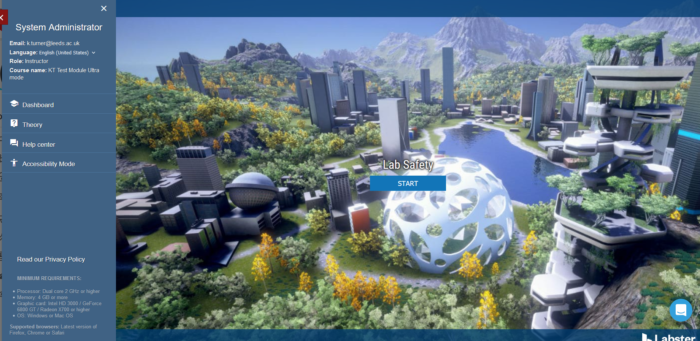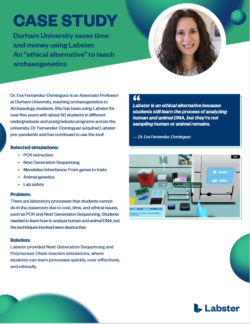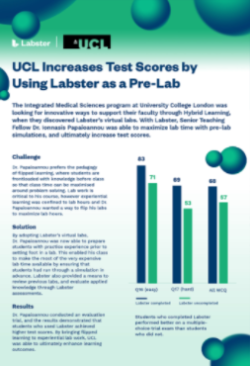What is Labster? - Staff Guide

What is Labster?
Labster (www.labster.com) is a 3D laboratory training software which delivers interactive, virtualised laboratory simulations and courses across STEM and other subject areas to offer an immersive learning experience.
Aimed at undergraduate and foundation level studies, and focused within a virtual science campus setting, Labster provides learners with opportunities to explore real-world scenarios and gain confidence with advanced scientific equipment within a virtual setting.
Its courses include elements of algorithmic generation, gamification, assessment and simulation, with the product currently offering over 300 courses, including General Biology, Genetics, Cellular and Molecular Biology, Physiology, Organic Chemistry, Engineering among others. New simulations are released on a regular basis, with recent releases covering subjects such as Analytical Chemistry, Organic Chemistry, and Anatomy and Physiology.

Labster also provides access to a rich library of 3D science animations, images, quizzes and theory components, and provides flexibility that lends itself to asynchronous working.
Labster is ideal as a Post-COVID Lab supplement used in conjunction with a physical laboratory practice.
Other examples of how the platform can be used are:
- Laboratory safety training for first years and new students
- To provide opportunities for students to safely train in hazardous scenarios which would otherwise be difficult to recreate
- For pre-session work eg. students work through a short simulation on a specific technique or topic prior to a laboratory session
- To link to an image or animation to use as post-lecture supplementary materials and reinforce in-person learning
‘We found our students used Labster to support their learning during the year. It complemented our lectures and seminars well, in addition when we used Labster for assessment purposes we found it inclusive, and it showed no bias in terms of assessing neurodiverse students’.
Linda Forbes, Teaching Fellow in Chemistry, Lifelong Learning Centre and Deputy Programme Manager for Science Foundation Year
To find out more about Labster at Leeds
If you’d like to find out more about Labster, or are interested in arranging a demonstration, please contact us to arrange an initial discussion.
You can also visit the Labster’s blog and product guides and list of simulations with learning objectives for more information and ideas on using this platform:
Labster Case Studies
Labster is used by STEM courses in a variety of universities elsewhere in the UK, Europe and worldwide. The following case studies provide examples of how Labster can be used within learning and teaching:
Durham University
Durham University is using Labster as ethical alternative to teaching archaeogenetics and handling remains. Find out more about its use here: Durham University saves time and money using Labster

University College London

Find out about how University College London's Integrated Medical Sciences program used Labster in innovative ways to support their faculty with Hybrid Learning: UCL Increases Test Scores by Using Labster as a Pre-Lab
